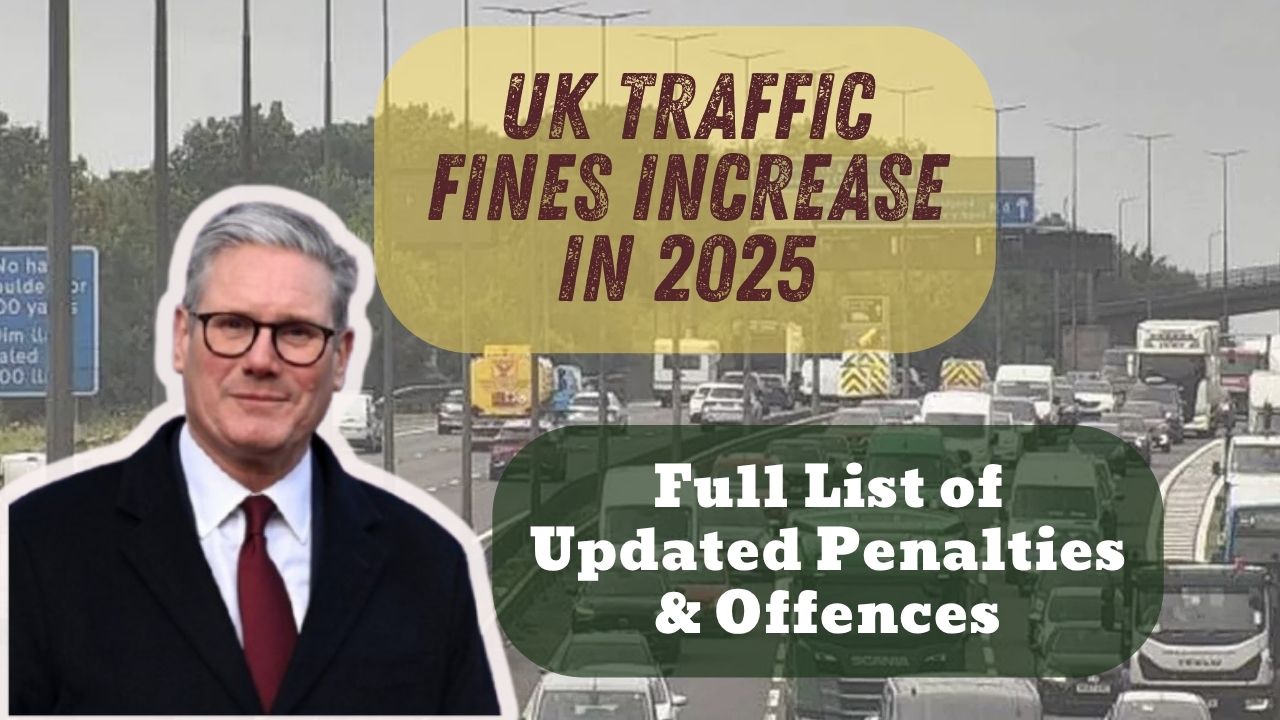The benefit of United Kingdom is undergoing a significant transformation, with the Department for Work and Pensions announcing that six income-related benefits will be permanently discontinued by March 2026. These welfares are commonly identified as legacy benefits. All of the existing benefits are being united into a single benefit, Universal Credit (UC).

Therefore, change is part of the government’s strategy to unify multiple benefits into one. The strategy to introduce Universal Credit aims to replace the complex array of different welfare programs that overlap with each other. These new programs aim to create a unified system by simplifying administration and reducing errors.
DWP Confirms Six Benefits Will End by March 2026
It is estimated that by the end of 2025, over 2.6 million households across the UK will have completed their move to Universal Credit. Some of the claimants have already taken a step toward it, especially those receiving Jobseeker’s Allowance, tax credit, and Income Support.

The Finals group, who are receiving more complex benefits combinations like Housing Benefit and Employment and Support Allowance (ESA), are now being transitioned towards Universal Credit. These applicants start receiving a migration notice, which provides them three months to apply for the Universal Credit. Those applicants who fail to apply within this window may result in the termination of their existing benefits.
Six Benefits to Be End by March 2026
As part of the transition, the six benefits are fully replaced by the Universal Credit. The idea for transforming these benefits is important because these payments are considered obsolete in terms of their scope, eligibility, and administration.

Over the last few years, most of the new claimants have already been reformed to Universal Credit, while the existing beneficiaries are now being progressively moved under the final phase of migration. These are the following benefits that are phased out along with their original function within the new welfare system.
| Benefits Name | Primary Objective |
| Working Tax Credit | Income supplement for individuals in low-paid employment. |
| Child Tax Credit | Financial support for families with dependent children. |
| Jobseeker’s Allowance (JSA) (Income-based) | Provision for job seekers with limited savings and income. |
| Housing Benefit | Provides rent assistance to low-income individuals and families. |
| Employment and Support Allowance (ESA) (Income-related) | Assists those with limited capability for work due to health conditions. |
| Income Support | Payment to individuals on low income who are not expected to work. |
These six benefits will permanently end for the existing beneficiaries when they move to UC or pass the deadline without applying. The deadline for applying to the UC is March 2026.


How is the Transition Being Managed?
The transition to UC has been categorized into multiple phases by the DWP since the introduction of Universal Credit in 2013. At the start, this applied only to new claimants, but over time, the process moved into an immigration model that targets the existing beneficiaries in 2019. To manage this transformation, the DWP has scaled the program to reach the broader categories of applicants.
In the early phases, those transitions had been completed which are easy to process, like single payments or working individuals. And, when the migration moved towards the complex cases, such as multiple benefits support, individuals with disabilities, then these cases were categorized into later stages.

The primary focus group is the applicants of ESA and Housing benefits as of mid-2024. The personalized migration notices were sent to these recipients, which inform them about the action required and also state the deadline to apply for the UC. The Department aimed to complete the migration process by March 2026, and after this deadline, no legacy benefits payment will be issued.
Steps for Claimants During Migration
A notice sent by the DWP includes the deadline by which individuals must apply for Universal Credit. Those claimants who receive the notice of migration to UC will need to follow this defined process within the deadline. Those applicants who fail to apply within the time period will face the loss of their existing benefits with no back pay after the deadline has passed.
- To understand the instructions and deadline, make sure to read the migration notice carefully.
- The applicants have to submit their application for the Universal Credit within three months of receiving the migration notice.
To apply for Universal Credit, claimants must gather essential documents and other financial information, such as employment status, income sources, bank details, and housing arrangements. Claimants facing difficulties with the application can contact support services like DWP-authorized partners or Job Centre Plus.
Those who fail to apply during this transition will permanently lose their entitlement to legacy benefits. Not responding to the migration notice will not result in an automatic transfer. In many cases, claimants will need to start a new Universal Credit claim with no transitional financial safeguards.
Additional Points Claimants Should Be Aware Of
Several key details must be understood by the beneficiaries regarding the final migration phases.
- The applicant has to update their contact details with the department. So the migration notices will not go to the outdated addresses.
- Those claimants who qualify for the severe Disability Premiums may have additional protections.
- If the claimant does not act on the migration notice will result in no payments because the missing UC application at the deadline will lead to permanent suspension of payments.
- Those claimants who have limited digital access then they can request telephone support or in-person support.
Final Thoughts
The policy to end the six legacy benefits marks the completion of a vital chapter, which is a part of the social support system of the UK government. All of the existing benefits are being united into a single benefit, Universal Credit (UC). The applicants have to submit their application for the Universal Credit within three months of receiving the migration notice.
Those applicants who fail to apply within this window may result in the termination of their existing benefits. The department continues to provide support through different channels, which ensure that no eligible person is left behind during the final phase of the application.
| Official Website | Click Here |
| Homepage | Moyle-Council.org |





